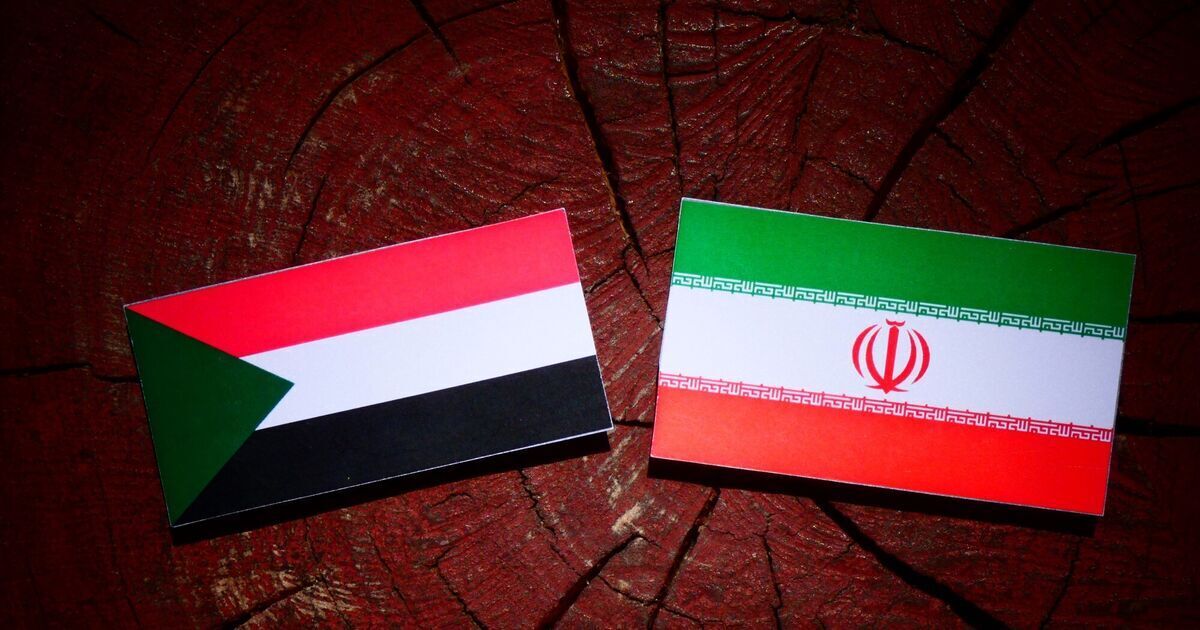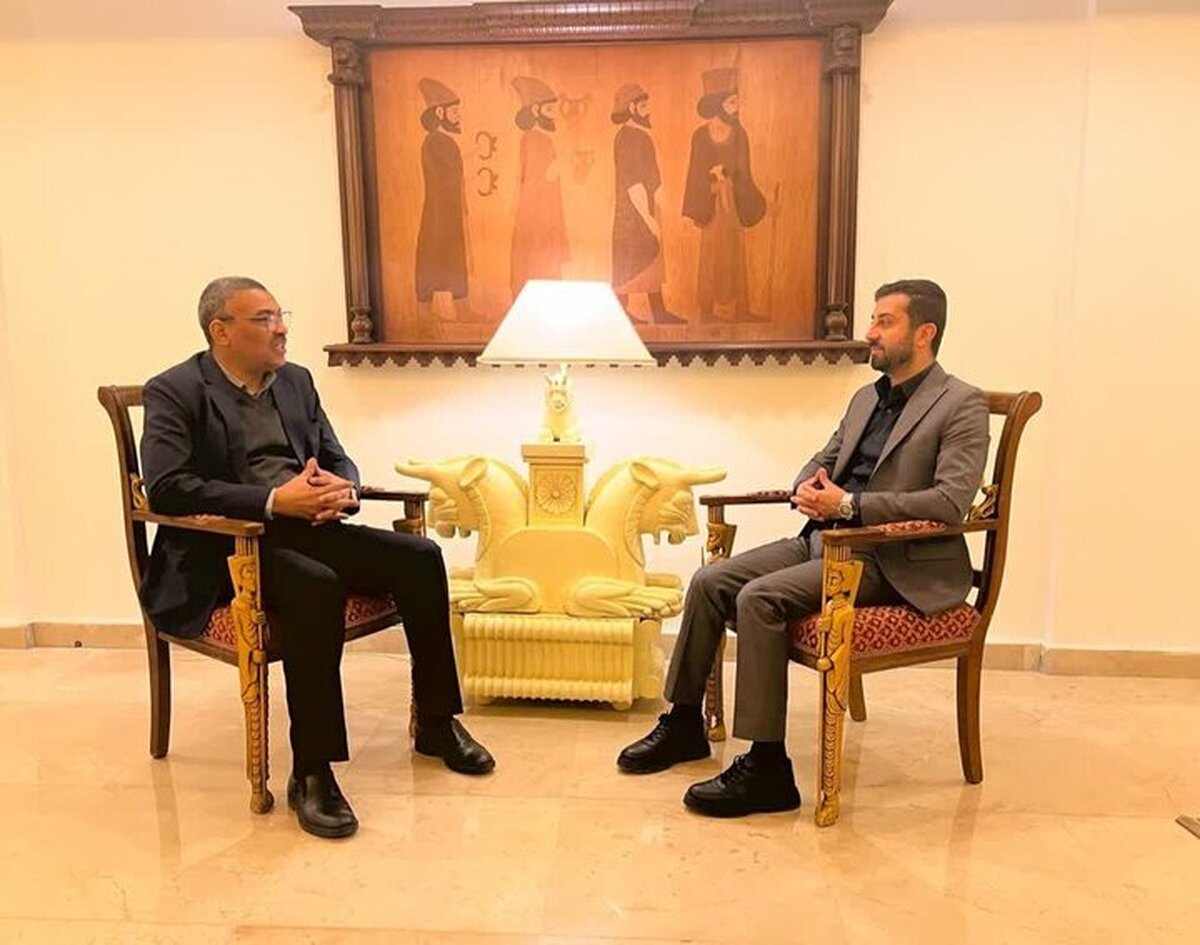Sudan sees close, positive partnership with Iran: Envoy

The Ambassador of the Republic of Sudan in Tehran said that his country's relations with the Islamic Republic of Iran are close, positive, and longstanding.
In recent months, the Republic of Sudan has been facing a sensitive and complex situation; internal conflicts and a widespread humanitarian crisis have placed this important African nation in one of the most difficult periods of its modern history. Given Sudan’s strategic position in the Horn of Africa and along the Red Sea coast, developments in this country hold special significance not only for the Sudanese people but also for regional stability.
Mehr News Agency has interviewed Abdulaziz Hassan Saleh Taha, the Ambassador of the Republic of Sudan in Tehran, to discuss various aspects of the recent developments, the future outlook for Sudan, and the relations between Tehran and Khartoum.
In this interview, he criticized the silence of international organizations and Western countries in the face of these crimes and announced that evidence of the UAE’s financial and military support for these groups has been submitted to the United Nations Security Council.
At present, in which areas are the main centers of conflict between the Sudanese Armed Forces and the Rapid Support Forces concentrated, and what strategic objectives lie behind these clashes?
As you know, this aggression against Sudan began on April 15, 2023. The rebel-terrorist force that rose up against the country’s legitimate authority sought not only to assassinate Sudanese figures but to target the identity, culture, values and morals of the Sudanese nation. Through their inhuman acts they committed crimes amounting to “war crimes,” “crimes against humanity,” and “genocide.”
These forces destroyed cultural centers, museums, universities, schools and religious sites such as mosques, and even murdered innocent worshippers; churches were not spared from this destruction either.
In the face of this organized aggression, the people of Sudan stood with persistence, courage and sacrifice alongside the army, the armed forces and their support units. Over the two years of war they were able to drive these rebel and terrorist forces — who had come with the help of foreign mercenaries and the backing of certain countries (which provided money and equipment to kill the people of Sudan) — out of Khartoum, the Sudanese capital, and several cities in different states.
More recently, on 26 October, after a two-year siege of the city of Al Fashir, these terrorist forces entered the city and committed all manner of crimes and massacres that the whole world witnessed — including the Islamic Republic of Iran and its independent media, which covered these atrocities.
Unfortunately, these crimes in the cities of Al Fashir and Bara (in North Kordofan state) have been met with the silence of the international community and regional and international institutions. In Sudan, both the government and the people call on the entire world and on independent media to place these rebel and terrorist forces on terrorist lists and to condemn the countries that support them with money, weapons and the sending of mercenaries.
What factors led the political disagreements between the army and the Rapid Support Forces to turn into a full-scale war?
In fact, what has happened in Sudan is not a political dispute between the army and this rebel group. Nor is it merely a personal conflict between the commander of the army, who heads Sudan’s Sovereign Council, and the leader of this terrorist group. Rather, it is an act of aggression and a premeditated plan for a coup against the country’s legitimate government — an attempt to seize power with the external backing of certain countries.
When the Sudanese army foiled this plan, the conflict turned into a full-scale war against the Sudanese nation itself — not just against the legitimate government. In most wars, the fighting occurs between two armed forces, but in Sudan, the main target has been defenseless civilians. Acts such as assassinations, bombardment of residential areas, destruction of infrastructure and public services (like hospitals, water and power stations), displacement of civilians, seizure of homes and banks (including the Central Bank), and widespread looting of people’s property — from cars and money to school and university equipment — have all been part of this war.
Even religious sites were not spared from these crimes, and women and girls have suffered abuse at the hands of these criminals. Therefore, this is not merely a dispute between the “army and the Rapid Support Forces”; it is the work of a rebel and terrorist group that has brought in mercenaries from several continents and countries and seeks to alter the demographic composition of Sudan’s population.
You yourself have seen the videos published in recent weeks showing how these individuals murder defenseless innocents. This war is not between the regular army of a sovereign nation and a simple rebel group; it is a war waged by a faction that, unfortunately, receives support from certain foreign countries — both regional and international.
Reports have emerged alleging that the United Arab Emirates has provided military and logistical support to the Rapid Support Forces (RSF). What evidence exists regarding this, and what has been Khartoum’s official response?
The Sudanese government has submitted official documents and evidence to the United Nations Security Council and the UN Secretariat showing that the government of the United Arab Emirates has provided financial and military support to these rebel and terrorist forces. This includes participation in funding the purchase of weapons and the recruitment of mercenaries.
These reports have even been confirmed in the findings and investigations of certain UN committees, some Western countries, and in reputable American and European media outlets. All of this evidence has been officially presented by Sudan’s Permanent Mission to the United Nations in New York, leaving no doubt about its authenticity.
Following the normalization of diplomatic relations between Iran and Sudan, what concrete steps have the two countries taken to strengthen cooperation in political, economic, and humanitarian fields, and how has Sudan prioritized these areas?
Our relations with the Islamic Republic of Iran are close, positive, and longstanding. The two countries share many commonalities — both are Muslim nations, members of the Organization of Islamic Cooperation, the Non-Aligned Movement, and the United Nations. Of course, these relations were severed for eight years, from 2016 to 2024, but they were restored last year (2024), with Sudan reopening its embassy in Tehran and Iran reopening its embassy in the port city of Port Sudan.
Our relations with the Islamic Republic of Iran are friendly and deep-rooted. In this short period, positive steps have been taken to develop diplomatic, economic, and commercial ties. Both sides and both governments have reaffirmed their commitment to cooperation in various fields, including the economy, trade, technology, and agriculture.
However, since only a year has passed since the resumption of relations — and given that the war began in 2023, when relations were still suspended — there has essentially been no opportunity for any form of military assistance from Iran to Sudan. Therefore, I emphasize that the relationship between Sudan and Iran is a normal one, similar to Sudan’s relations with other countries, and is based on mutual respect and national sovereignty.
Given Sudan’s location on the Red Sea, what role does the rivalry of regional and global powers play in the continuation of the conflict?
Sudan overlooks the Red Sea and has a coastline of about 850 kilometers. This area is a highly important commercial and economic route. As an independent country, Sudan cooperates with other Red Sea coastal states to ensure maritime security and maintains full control over its territorial waters.
Of course, major powers — and even some regional countries — have interests and ambitions in this maritime corridor. However, Sudan will not allow its national sovereignty to become a tool for the implementation of foreign agendas./mehr




